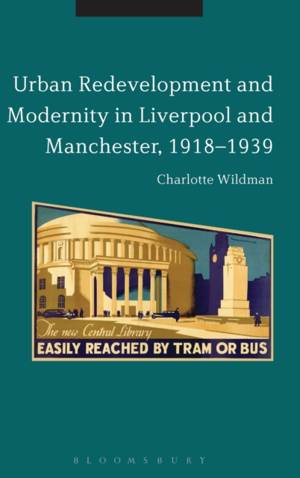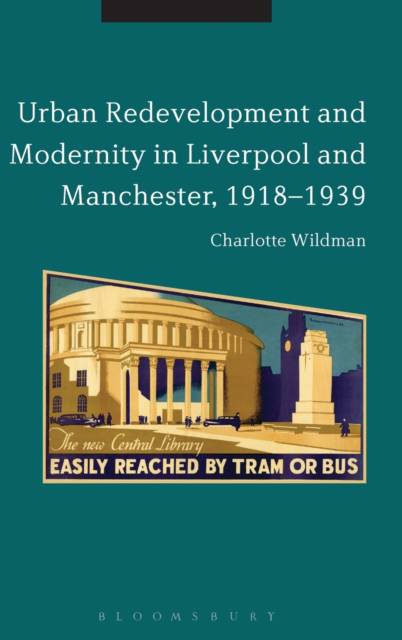
- Afhalen na 1 uur in een winkel met voorraad
- Gratis thuislevering in België vanaf € 30
- Ruim aanbod met 7 miljoen producten
- Afhalen na 1 uur in een winkel met voorraad
- Gratis thuislevering in België vanaf € 30
- Ruim aanbod met 7 miljoen producten
Zoeken
Urban Redevelopment and Modernity in Liverpool and Manchester, 1918-1939
Charlotte Wildman
Hardcover | Engels
€ 296,95
+ 593 punten
Uitvoering
Omschrijving
Faced with economic decline, unprecedented levels of unemployment and new forms of political extremism during Britain's last great economic crash, politicians and planners in Liverpool and Manchester responded by investing in dramatic and ambitious programmes of urban regeneration. Urban Redevelopment and Modernity in Liverpool and Manchester, 1918-1939 is the first book to provide the hitherto unknown story of the innovative transformation of these cities.
Charlotte Wildman challenges academic scholarship in British history, which associates the post-1918 period with the emasculation of local government and the decline of civic culture. She shows that local politicians, planners, architects, businessmen and even religious leaders embraced innovative trends in creating distinct forms of urban modernities, which particularly changed the way women experienced the transformed city. Urban Redevelopment and Modernity in Liverpool and Manchester, 1918-1939 offers a complex, interactive and multipolar interpretation of the ways cities develop, pointing to new methods and ways of understanding both interwar Britain and urban history more generally.
At a time of debate and discussion about devolution and decentralisation of government, this book makes an opportune contribution to debates about urban governance and regionalism in contemporary Britain.
Charlotte Wildman challenges academic scholarship in British history, which associates the post-1918 period with the emasculation of local government and the decline of civic culture. She shows that local politicians, planners, architects, businessmen and even religious leaders embraced innovative trends in creating distinct forms of urban modernities, which particularly changed the way women experienced the transformed city. Urban Redevelopment and Modernity in Liverpool and Manchester, 1918-1939 offers a complex, interactive and multipolar interpretation of the ways cities develop, pointing to new methods and ways of understanding both interwar Britain and urban history more generally.
At a time of debate and discussion about devolution and decentralisation of government, this book makes an opportune contribution to debates about urban governance and regionalism in contemporary Britain.
Specificaties
Betrokkenen
- Auteur(s):
- Uitgeverij:
Inhoud
- Aantal bladzijden:
- 304
- Taal:
- Engels
Eigenschappen
- Productcode (EAN):
- 9781474257367
- Verschijningsdatum:
- 22/09/2016
- Uitvoering:
- Hardcover
- Formaat:
- Genaaid
- Afmetingen:
- 155 mm x 234 mm
- Gewicht:
- 589 g

Alleen bij Standaard Boekhandel
+ 593 punten op je klantenkaart van Standaard Boekhandel
Beoordelingen
We publiceren alleen reviews die voldoen aan de voorwaarden voor reviews. Bekijk onze voorwaarden voor reviews.







